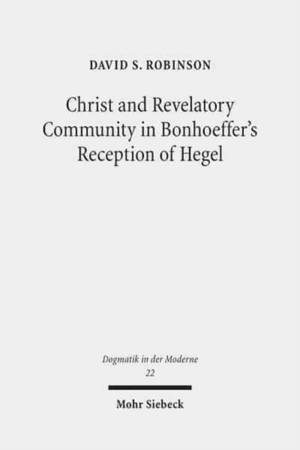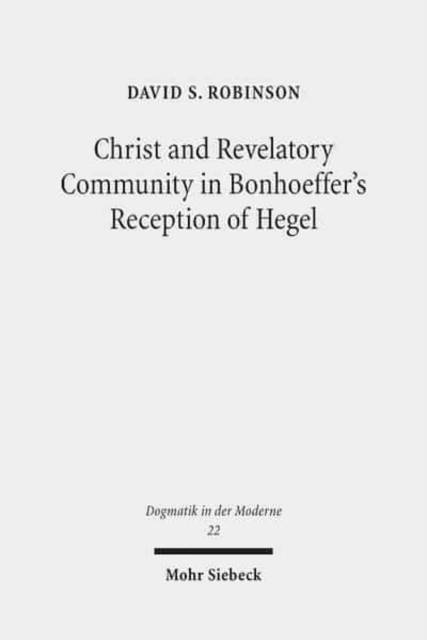
- Afhalen na 1 uur in een winkel met voorraad
- Gratis thuislevering in België vanaf € 30
- Ruim aanbod met 7 miljoen producten
- Afhalen na 1 uur in een winkel met voorraad
- Gratis thuislevering in België vanaf € 30
- Ruim aanbod met 7 miljoen producten
Zoeken
Christ and Revelatory Community in Bonhoeffer's Reception of Hegel
David S Robinson
€ 159,95
+ 319 punten
Omschrijving
How is God revealed through the life of a human community? Dietrich Bonhoeffer's theological ethics begins from the claim to `Christ existing as community', one of several variations on G.W.F. Hegel's philosophy of religion. David Robinson argues that Bonhoeffer's eclectic use of Hegel's thought, from the socialising notion of `objective Geist' to a trenchant depiction of the `cleaving' mind, should not be obscured by his polemic against Idealism. He also offers close readings of Hegel's texts in order to appraise Bonhoeffer's criticism, particularly the charge of a `docetic' distinction between idea and appearance in Christology. Meanwhile, historical context is provided for Hegel's `deconfessionalisation' of the church vis-a-vis the state and Bonhoeffer's recovery of the ecclesio-political mark of suffering as non-recognition. The author provides a vital enquiry into the social compositions of faith and reason.
Specificaties
Betrokkenen
- Auteur(s):
- Uitgeverij:
Inhoud
- Aantal bladzijden:
- 260
- Taal:
- Engels
- Reeks:
- Reeksnummer:
- nr. 22
Eigenschappen
- Productcode (EAN):
- 9783161559631
- Verschijningsdatum:
- 1/06/2018
- Uitvoering:
- Paperback
- Formaat:
- Trade paperback (VS)
- Afmetingen:
- 155 mm x 231 mm
- Gewicht:
- 430 g

Alleen bij Standaard Boekhandel
+ 319 punten op je klantenkaart van Standaard Boekhandel
Beoordelingen
We publiceren alleen reviews die voldoen aan de voorwaarden voor reviews. Bekijk onze voorwaarden voor reviews.











